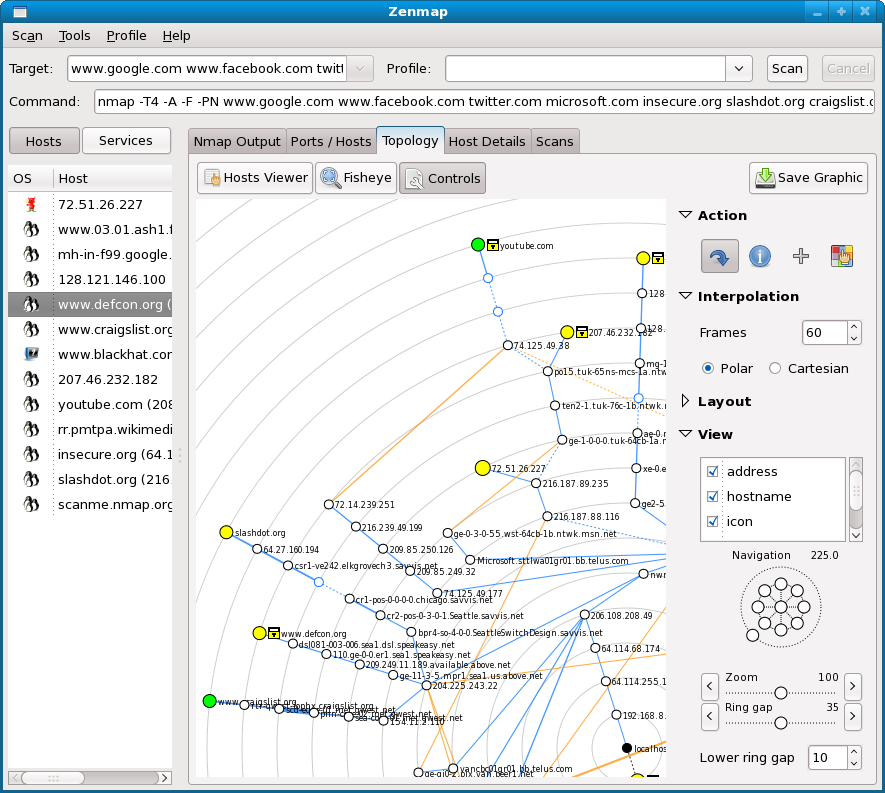traceroute TCP equivalent for Windows [closed]
You can use nmap 5.0 with --traceroute option. You will also get a portscan for free :).
If you want to test a specific port, you can use -p port option. (You should also use -Pn option so that nmap doesn't try to do a regular ICMP probe first). This is an example:
$ sudo nmap -Pn --traceroute -p 8000 destination.com
PORT STATE SERVICE
8000/tcp open http-alt
TRACEROUTE (using port 443/tcp)
HOP RTT ADDRESS
1 0.30 origin.com (192.168.100.1)
2 0.26 10.3.0.4
3 0.42 10.1.1.253
4 1.00 gateway1.com (33.33.33.33)
5 2.18 gateway2.com (66.66.66.66)
6 ...
7 1.96 gateway3.com (99.99.99.99)
8 ...
9 8.28 destination.com (111.111.111.111)
If you're interested in a graphical tool, you can use zenmap, which also displays topology maps based on traceroute output.

Scapy has a tcp trace route function described in this Scapy tutorial. Scapy can be installed on Windows, here are the instructions. I am not positive that his function is available in the Windows version, but it might be.
It will help to know python, or at least some knowledge of OO (Object Oriented) programing, but you might not need it just to follow the tutorial I linked to. Scapy also assumes you have basic understanding of the OSI model I think.
I'm not sure if nmap --traceroute will work properly on Windows due to Windows ignoring requests for non-standard TTLs. I just get an oddly-shaped two-hop path to something that's about 10-20 hops away:
c:\Program Files (x86)\Nmap>nmap -Pn --traceroute -p 443 66.98.200.8
Starting Nmap 6.01 ( http://nmap.org ) at 2012-08-27 18:52 GMT Daylight Time
Nmap scan report for live.sagepay.com (195.170.169.9)
Host is up (0.21s latency).
PORT STATE SERVICE
443/tcp open https
TRACEROUTE (using port 443/tcp)
HOP RTT ADDRESS
1 31.00 ms 192.168.192.2
2 62.00 ms 66.98.200.8
I'll post back if I find something fit for purpose that hasn't already been mentioned.
You can find a number of links googleing.
A Linux implementation on traceroute being able to use TCP protocol and having replaced the old implementation on many distros. Simple use the -T flag on those systems.
On Mac -P TCP does the job.
Historically a number of ad hoc tools were developed; among the other references there is a simple python script that can be used also specifing the port one needs to probe: tcptraceroute.py while one of the most popular is tcptraceroute by Michael Toren.